Fleurs du Mal Magazine


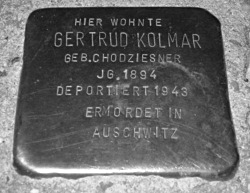
Die Einsame
Ich ziehe meine Einsamkeit um mich,
Sie ist so wie ein wärmendstes Gewand
An mir geworden ohne Kniff noch Stich,
Wenn auch der Ärmel fällt tief über meine Hand.
Ein Ungekannter hat ihr Maß gezirkt,
Die fremdes Antlitz fühlt als trübes Wehn;
Die großen Schwarzhalsschwäne sind gewirkt
In ihre Falten; aber ich nur kann sie sehn.
Es tun sich meine innren Blicke auf
– Ein Pfauenauge, das die Flügel schließt –
Und schaun der Welle jadefarbnen Lauf,
Die alte Säume licht und strömend übergießt.
Sie feuchten so wie einer Elbe Haar.
Sie tragen noch den Fluss. Sie schleppen tief.
Und graues Berggestade fängt das Jahr,
Das wie ein Vogel ängstlich seine Tage rief.
Und nun ist Schweigen, Und das Kleid schwillt nun.
Und ich muss wachsen, dass es mir noch ziemt,
Drin Fische, wie sie niemals wirklich tun,
Um meine Brüste schweben, pupurblau gekiemt.
Der Erde Körner sind hineingesät.
Aus meiner Schulter bricht ein Felsengold,
Das Tuch durchschimmernd, das sich schleift und bläht
Und langsam über meiner Stirn zusammenrollt.
Gertrud Kolmar
(1894-1943)
gedicht: Die Einsame
fleursdumal.nl magazine
More in: Archive K-L, Archive K-L, Kolmar, Gertrud
«Maintenant je résume : on attendait un tas de choses de la vie, on n’a rien fait de bien, on glisse peu à peu vers le néant, et ce dans un trou paumé où une splendide cascade nous rappelle tous les jours que la misère est une invention humaine et la grandeur le cours naturel du monde.»
 Année 1902, Tom Smith et Jerry Wesson se rencontrent au pied des chutes du Niagara. L’un passe son temps à rédiger des statistiques météorologiques ; l’autre à repêcher les corps engloutis par les rapides.
Année 1902, Tom Smith et Jerry Wesson se rencontrent au pied des chutes du Niagara. L’un passe son temps à rédiger des statistiques météorologiques ; l’autre à repêcher les corps engloutis par les rapides.
Rencontre exceptionnelle, comme celle que les deux types font avec Rachel Green, jeune journaliste prête à tout pour dénicher le scoop du siècle, même à embarquer Smith et Wesson dans son projet loufoque : plonger dans les chutes du Niagara et s’en sortir vivante. Tout le monde en rêve, personne ne l’a jamais fait. Il ne reste alors qu’à se glisser dans un tonneau, défier les lois de la physique et sauter.
Nous avons tous besoin d’une histoire mémorable, d’un exploit hors norme pour réaliser quelque chose qui nous soit vraiment propre.
Alessandro Baricco (1958): Prix Médicis étranger 1995
Alessandro Baricco:
Smith & Wesson
Trad. de l’italien par Lise Caillat
Collection Du monde entier, Gallimard
Parution : 17-05-2018
160 pages
140 x 205 mm
Genre : Littérature Italiennes
Pays : Italie
Époque : XXe-XXIe siècle
ISBN : 9782070179039
Code distributeur : A17903
Prix €16,00
new books
fleursdumal.nl magazine
More in: #Biography Archives, - Book News, - Bookstores, Archive A-B
`Je ziet er echt uit als een Chinees’, roept Thija en ze danst naar Tijger toe.
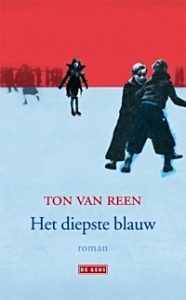 Ze struikelt over een touw waarmee de pagode is vastgezet en valt bijna van de wagen. Gelukkig weet Mels haar op te vangen.
Ze struikelt over een touw waarmee de pagode is vastgezet en valt bijna van de wagen. Gelukkig weet Mels haar op te vangen.
`Ik had dood kunnen vallen’, zegt ze, nog wit van schrik.
Mels straalt, maar hij is teleurgesteld als ze zijn armen wegduwt en doorloopt naar Tijger. Ze slaat een arm om hem heen.
`Kom erbij, Mels,’ roept ze, `dan staan we met z’n drieën op de film.’ Maar hij ziet dat het te laat is. De directeur heeft de camera al gericht op de groep eskimo’s in witte lakens, die achter de auto lopen.
`Te laat!’ roept hij. `Wij zijn allang uit beeld.’
Ton van Reen: Het diepste blauw (069)
wordt vervolgd
fleursdumal.nl magazine
More in: - Book News, - Het diepste blauw, Archive Q-R, Reen, Ton van
Von Ehre ohne Ruhm, von Grösse ohne Glanz, von Würde ohne Sold
 Die 1936 in einem Schweizer Verlag erschienene Briefsammlung “Deutsche Menschen” ist Walter Benjamins letzte Veröffentlichung zu Lebzeiten.
Die 1936 in einem Schweizer Verlag erschienene Briefsammlung “Deutsche Menschen” ist Walter Benjamins letzte Veröffentlichung zu Lebzeiten.
Siebenundzwanzig Briefe von Kant bis Goethe, von Droste-Hülshoff bis Büchner aus den Jahren zwischen 1767 und 1883 hat er zusammengestellt und kommentiert, um seinen Landsleuten das bessere Beispiel eines aufgeklärten und humanistischen Bürgertums vorzuhalten.
Das Private und das Objektive der Briefe sind durch den Abstand des Betrachters nicht mehr Gegensätze: Beides vermischt sich, gleicht sich an. Die Personen mit ihren Bedürfnissen gehen auf in ihrer Epoche, ihre Freuden und Schmerzen zeigen sich als Zeichen ihrer Zeit und Herkunft.
Walter Benjamin
Deutsche Menschen
Eine Folge von Briefen
(Ungekürzte Lesung)
MP3 Hörbuch Download
€13,95
Laufzeit ca. 223 Minuten.
Vorgelesen von Christian Brückner
Argon Verlag GmbH
Oktober 2017
Format: MP3
Kopierschutz: Adobe
new audio books
fleursdumal.nl magazine
More in: - Audiobooks, Archive A-B, Art & Literature News, AUDIO, CINEMA, RADIO & TV, Walter Benjamin
Qui a bien pu tuer Ichrak la belle, dans cette ruelle d’un quartier populaire de Casablanca?
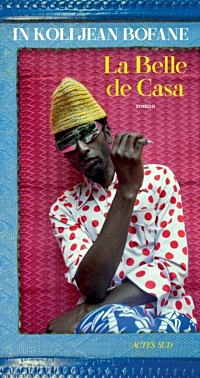 Elle en agaçait plus d’un, cette effrontée aux courbes sublimes, fille sans père née d’une folle un peu sorcière, qui ne se laissait ni séduire ni importuner. Tous la convoitaient autant qu’ils la craignaient, sauf peut-être Sese, clandestin arrivé de Kinshasa depuis peu, devenu son ami et associé dans un business douteux. Escrocs de haut vol, brutes épaisses ou modestes roublards, les suspects ne manquent pas dans cette métropole du xxie siècle gouvernée comme les autres par l’argent, le sexe et le pouvoir.
Elle en agaçait plus d’un, cette effrontée aux courbes sublimes, fille sans père née d’une folle un peu sorcière, qui ne se laissait ni séduire ni importuner. Tous la convoitaient autant qu’ils la craignaient, sauf peut-être Sese, clandestin arrivé de Kinshasa depuis peu, devenu son ami et associé dans un business douteux. Escrocs de haut vol, brutes épaisses ou modestes roublards, les suspects ne manquent pas dans cette métropole du xxie siècle gouvernée comme les autres par l’argent, le sexe et le pouvoir.
Et ce n’est pas l’infatigable Chergui, vent violent venu du désert pour secouer les palmiers, abraser les murs et assécher les larmes, qui va apaiser les esprits…
Avec sa lucidité acérée et son humour féroce, In Koli Jean Bofane dénonce la corruption immobilière, la précarité des migrants et la concupiscence masculine. Par son talent de conteur, son art du dialogue et des portraits, il bouscule joyeusement une réalité contemporaine tout à fait accablante – la truculence du désespoir.
In Koli Jean Bofane est né le 24 octobre 1954 à Mbandaka (R.D. du Congo) et vit en Belgique. En France, il a publié Pourquoi le lion n’est plus le roi des animaux (Gallimard Jeunesse), lauréat du Prix de la Critique de la Communauté Française de Belgique ; et chez Actes Sud : Mathématiques congolaises (2008) et Congo Inc., le testament de Bismarck (2014, Prix des cinq continents de la Francophonie). Ses ouvrages ont été traduits aux USA, en Allemagne, au Brésil, en Corée, en Slovénie.
La Belle de Casa
In Koli Jean BOFANE
Actes Sud Littérature
Domaine français
Août, 2018
11,5 x 21,7
208 pages
isbn 978-2-330-10935-6
€19,00
new books
fleursdumal.nl magazine
More in: - Book News, - Book Stories, Archive A-B, Art & Literature News
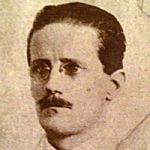
Be Not Sad
Be not sad because all men
Prefer a lying clamour before you:
Sweetheart, be at peace again — –
Can they dishonour you?
They are sadder than all tears;
Their lives ascend as a continual sigh.
Proudly answer to their tears:
As they deny, deny.
James Joyce
(1882-1941)
Be Not Sad
fleursdumal.nl magazine
More in: Archive I-J, Archive I-J, Joyce, James, Joyce, James
The Art of Reading presents the first retrospective of Lawrence Schwartzwald’s candid images of readers, made between 2001 and 2017.
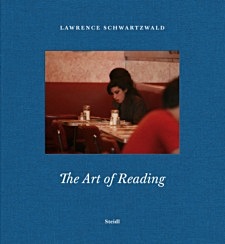 Partly inspired by André Kertész’s On Reading of 1971, Schwartzwald’s subjects are mostly average New Yorkers—sunbathers, a bus driver, shoeshine men, subway passengers, denizens of bookshops and cafes—but also artists, most notably Amy Winehouse at Manhattan’s now-closed all-night diner Florent.
Partly inspired by André Kertész’s On Reading of 1971, Schwartzwald’s subjects are mostly average New Yorkers—sunbathers, a bus driver, shoeshine men, subway passengers, denizens of bookshops and cafes—but also artists, most notably Amy Winehouse at Manhattan’s now-closed all-night diner Florent.
In 2001 Schwartzwald’s affectionate photo of a New York bookseller reading at his makeshift sidewalk stand on Columbus Avenue (and inadvertently exposing his generous buttock cleavage) caused a minor sensation: first published in the New York Post, it inspired a reporter for the New York Observer to interview the “portly peddler” in a humorous column titled “Wisecracking on Columbus Avenue” of 2001.
Since then Schwartzwald has sought out his readers of books on paper—mostly solitary and often incongruous, desperate or vulnerable—who fly in the face of the closure of traditional bookshops and the surge in e-books, dedicating themselves to what Schwartzwald sees as a vanishing art: the art of reading.
Lawrence Schwartzwald: Born in New York in 1953, Lawrence Schwartzwald studied literature at New York University. He worked as a freelance photographer for the New York Post for nearly two decades and in 1997 New York Magazine dubbed him the Post’s “king of the streets.” Books and literature have shaped several of his photo series including “Reading New York” and “Famous Poets,” both self-published in 2017. Schwartzwald lives and works in Manhattan.
Lawrence Schwartzwald
The Art of Reading
published by Steidl
Hardback / Clothbound
22 x 23 cm
English
ISBN 978-3-95829-508-7
1. Edition 06/2018
€ 28.00
new books
fleursdumal.nl magazine
More in: - Book Lovers, - Book Stories, Archive S-T, Art & Literature News, LITERARY MAGAZINES, PRESS & PUBLISHING, The Art of Reading
For all the scores of biographies of Arthur Conan Doyle, creator of the most famous detective in the world, there is no recent book that tells this remarkable story—in which Conan Doyle becomes a real-life detective on an actual murder case.
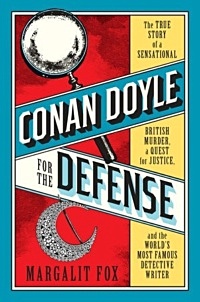 In Conan Doyle for the Defense, Margalit Fox takes us step by step inside Conan Doyle’s investigative process and illuminates a murder mystery that is also a morality play for our time—a story of ethnic, religious, and anti-immigrant bias.
In Conan Doyle for the Defense, Margalit Fox takes us step by step inside Conan Doyle’s investigative process and illuminates a murder mystery that is also a morality play for our time—a story of ethnic, religious, and anti-immigrant bias.
In 1908, a wealthy woman was brutally murdered in her Glasgow home. The police found a convenient suspect in Oscar Slater—an immigrant Jewish cardsharp—who, despite his obvious innocence, was tried, convicted, and consigned to life at hard labor in a brutal Scottish prison.
Conan Doyle, already world famous as the creator of Sherlock Holmes, was outraged by this injustice and became obsessed with the case. Using the methods of his most famous character, he scoured trial transcripts, newspaper accounts, and eyewitness statements, meticulously noting myriad holes, inconsistencies, and outright fabrications by police and prosecutors. Finally, in 1927, his work won Slater’s freedom.
Margalit Fox, a celebrated longtime writer for The New York Times, has “a nose for interesting facts, the ability to construct a taut narrative arc, and a Dickens-level gift for concisely conveying personality” (Kathryn Schulz, New York). In Conan Doyle for the Defense, she immerses readers in the science of Edwardian crime detection and illuminates a watershed moment in the history of forensics, when reflexive prejudice began to be replaced by reason and the scientific method.
A senior writer at The New York Times, Margalit Fox is considered one of the foremost explanatory writers and literary stylists in American journalism. As a member of the newspaper’s celebrated obituary news department, she has written front-page send-offs of some of the leading cultural figures of our age. (Conan Doyle for the Defense is in many ways a fond belated obituary for the long-overlooked Oscar Slater, an immigrant everyman treated inexcusably by history.) Fox’s previous book, The Riddle of the Labyrinth, won the William Saroyan International Prize for Writing. She lives in Manhattan with her husband, the writer and critic George Robinson.
Conan Doyle for the Defense
The True Story of a Sensational British Murder, a Quest for Justice, and the World’s Most Famous Detective Writer
By Margalit Fox
Illustrated
Hardcover
Published by Random House
Random House
$27.00
Jun 26, 2018
352 Pages
ISBN 9780399589454
new books
fleursdumal.nl magazine
More in: #Biography Archives, - Book News, - Bookstores, Archive E-F, Art & Literature News, Arthur Conan Doyle, CRIME & PUNISHMENT, Sherlock Holmes Theatre
For more than 40 years, legendary American artist Robert Crumb has documented his nightly dreams in a meticulously kept private journal.
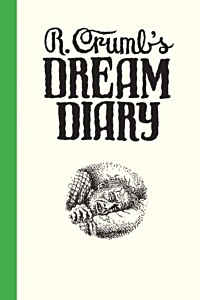 This material has stood as a guarded secret in a career defined by an impish compulsion to publically self-disclose. All of the artist’s well-documented preoccupations are present and accounted for—rampant egomania, insatiable lust, profound self-disgust, the sad beauty of old America, the moral bankruptcy of new America and the fool’s errand quest for spiritual enlightenment—but here they are entirely untamed, springing forth from forces beyond even his control.
This material has stood as a guarded secret in a career defined by an impish compulsion to publically self-disclose. All of the artist’s well-documented preoccupations are present and accounted for—rampant egomania, insatiable lust, profound self-disgust, the sad beauty of old America, the moral bankruptcy of new America and the fool’s errand quest for spiritual enlightenment—but here they are entirely untamed, springing forth from forces beyond even his control.
Published for the first time, the complete Dream Diaries offer readers a deep, dark look under the hood of one of America’s most aggressively dynamic comedic voices.
Widely considered the greatest cartoonist of the 20th century, Robert Crumb (born 1943) drew comics from a very young age. After a brief career in greeting-card design in Cleveland, in 1965 the young artist discovered LSD, and headed for San Francisco, where he published Zap Comix 1, reinventing the comics medium. In 1994 he was the subject of an acclaimed documentary film by Terry Zwigoff. His adaptation of The Book of Genesis was published in 2009 and the original art for the project was exhibited internationally, most notably at the Hammer Museum, Los Angeles, in 2009, and as part of the 55th Venice Biennale in 2013. His most recent books include Bible of Filth, Art & Beauty Magazine and (with Aline Kominsky-Crumb) Drawn Together. Crumb lives and works in Southern France.
R. Crumb’s
Dream Diary
Edited by Ronald Bronstein & Sammy Harkham
Elara Press
Compiles forty years of never-before-published somnambulant mindspray from one of the most unique thinkers in comics.
The first and only book on Crumb’s writings
containing 15 illustrations.
US $25.00
Hardcover
500 pgs
Publication: Sep 25 2018
Language: English
ISBN-10: 1942884338
ISBN-13: 978-1942884330
new books
fleursdumal.nl magazine
More in: #Biography Archives, - Book News, - Bookstores, Archive C-D, Art & Literature News, Illustrators, Illustration
`De oorlog werd pas heftig toen hij afgelopen was’, zegt Mels. `Toen die tommy’s er waren. Jongens uit grote steden. Waar ze dochters hadden, hielden ze de deur op slot.
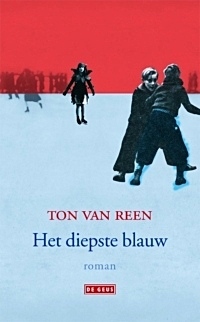 Maar de meiden tippelden op de Engelsen. Ze namen hen mee naar de bunker. Die soldaten zetten het dorp op zijn kop. Onze jongens vochten met ze. Geen meisje was nog in hen geïnteresseerd. Dat was pas echt oorlog.’
Maar de meiden tippelden op de Engelsen. Ze namen hen mee naar de bunker. Die soldaten zetten het dorp op zijn kop. Onze jongens vochten met ze. Geen meisje was nog in hen geïnteresseerd. Dat was pas echt oorlog.’
`Het verhaal over die liefdesbunker, dat moet je opschrijven’, zegt Koen. `Dat is mooi voor toeristen. Als ik volk trek met jouw verhalen, deel je in de winst.’
Mels drinkt zijn koffie op. Hij laat zich niet overhalen om een hoop flauwekul bij elkaar te schrijven.
Mevrouw Lecoeur komt binnen, haar bontjas open. Haar wangen zijn wit en haar lippen rood. Ze ziet eruit als een hoerenmadam, maar ze speelt geen toneel, ze ís een hoerenmadam. Elke ochtend doet ze boodschappen en gaat ze naar het café.
`Denk jij dat zo’n appartement in de silo wat voor mij is?’ vraagt ze aan Koen. `Denk je dat ik in het penthouse moet gaan wonen?’
`Uitzicht op de hemel doet jou zeker goed’, zegt Koen. Hij schenkt witte wijn in een limonadeglas en zet het haar voor.
Mevrouw Lecoeur klopt Mels op de schouder. `Ik kom voor jouw première, jongen.’
`Ik ga de film erin zetten.’ Wat gegeneerd rijdt Mels naar het zaaltje en zet de film op de spoel. Hij draait een stukje. De aftiteling. Het werkt. Hij spoelt de film terug naar het begin.
Hij wacht. Steeds kijkt hij op zijn horloge. Het is al tien minuten over tijd.
Mevrouw Lecoeur komt naast hem zitten, het glas in de hand.
`Zo, jongen, we zijn compleet. Je kunt starten.’
`Koen, doe jij het licht uit?’ roept hij. `Kom jij niet kijken?’
`Ik heb nooit in die fabriek gewerkt’, roept Koen. `Ik blijf bij de bar, voor als er toch nog mensen komen.’
Het wordt donker. De projector loopt.
`Dit is een film uit 1950′, vertelt Mels bij de beelden zonder geluid. `De kindsheidoptocht. Elk jaar trokken de kinderen verkleed als heidenen uit de missielanden door het dorp.’
Er trekt een stoet zwartgemaakte kinderen voorbij.
`Die hebben zich zwart gemaakt met roet’, legt hij uit. `Ze dragen rokjes van riet over hun kleren. Zo dachten wij toen dat negers eruitzagen. We hadden er geen enkel idee van. In de cabine, kijk, de chauffeur die zwaait, dat is mijn grootvader Bernhard. Je ziet, de pagode is gebouwd op de vrachtwagen van de meelfabriek.’
Mels wacht op hét moment. Deze film heeft hij bijna stuk gedraaid, voor dat ene moment.
Dan is ze er opeens. Thija staat achter op de wagen. Ze draagt de ochtendjas van haar moeder en heeft een papieren hoedje op. Hij weet nog dat ze zich helemaal geel had gemaakt, zelfs haar benen, maar dat is op de zwartwitfilm niet te zien. Ze lijkt inwit. Ze wijst naar de filmer in het publiek. Hijzelf staat naast haar, in korte broek, ook met een Chinese punthoed. Hij kijkt met haar mee naar de filmer. Dat moet de toenmalige directeur Frits van de meelfabriek zijn geweest. Dan trilt de film wat. Een jongen kruipt uit een kleine pagode. Het is Tijger. Hij doet zijn mond open, om iets te zeggen of om te lachen, maar dat wordt niet duidelijk, want dan springt de film naar een groep kinderen die zich in witte lakens hebben gehuld en die eskimo’s moeten voorstellen.
`Zag je die jongen in die korte broek?’ vraagt Mels.
`Viel mij niet op’, zegt mevrouw Lecoeur.
`Dat was ik.’
`Laat dan nog maar eens zien.’
Mels spoelt de film terug. Hij krijgt nooit genoeg van de beelden van Thija en Tijger. Dan is ze er weer. Thija staat weer achter op de wagen, in de ochtendjas van haar moeder, met een papieren hoedje op. Ze wijst naar iemand en Tijger kruipt weer uit de pagode van kippengaas naar buiten.
`Het ziet er bezopen uit’, zegt mevrouw Lecoeur. `Ach, die tijd. Niemand wist hoe het echt in die missielanden was.’
Er volgen nog beelden van een prijsuitreiking door de pastoor, in lange zwarte soutane, en door de vrouw van de directeur van de meelfabriek. Het mens in een koninginnejurk zwaait uitvoerig naar iedereen en ziet niet dat niemand terugzwaait.
Ton van Reen: Het diepste blauw (068)
wordt vervolgd
fleursdumal.nl magazine
More in: - Book Stories, - Het diepste blauw, Archive Q-R, Reen, Ton van
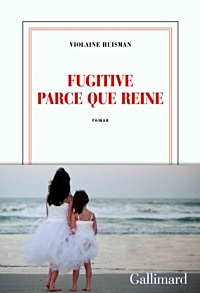
« Maman était une force de la nature et elle avait une patience très limitée pour les jérémiades de gamines douillettes. Nos plaies, elle les désinfectait à l’alcool à 90 °, le Mercurochrome apparemment était pour les enfants gâtés.
Et puis il y avait l’éther, dans ce flacon d’un bleu céruléen comme la sphère vespérale. Cette couleur était la sienne, cette profondeur du bleu sombre où se perd le coup de poing lancé contre Dieu.»
Ce premier roman raconte l’amour inconditionnel liant une mère à ses filles, malgré ses fêlures et sa défaillance. Mais l’écriture poétique et sulfureuse de Violaine Huisman porte aussi la voix déchirante d’une femme, une femme avant tout, qui n’a jamais cessé d’affirmer son droit à une vie rêvée, à la liberté.
Violaine Huisman est née en 1979 à Paris et vit depuis vingt ans à New York où elle a organisé de nombreux festivals et événements littéraires. Elle a aussi traduit plusieurs textes de l’américain dont La haine de la poésie de Ben Lerner.
Violaine Huisman
Fugitive parce que reine
Collection Blanche, Gallimard
Parution : 11-01-2018
256 pages
140 x 205 mm
Genre : Romans
Littérature française – Romans et récits
Époque : XXIe siècle
ISBN : 9782072765629
Code distributeur : G01396
new books
fleursdumal.nl magazine
More in: - Book News, - Bookstores, Archive G-H, Art & Literature News
Elke zomer opnieuw slaat het Kunstenfestival van Watou haar tenten op in het gelijknamige kunstdorpje aan de Franse grens.
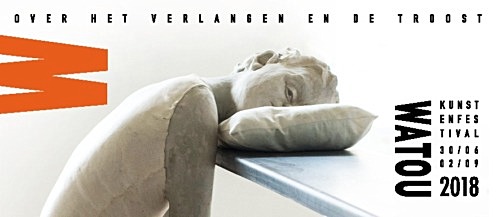
Dichters en beeldend kunstenaars, aanstormend talent en gevestigde waarden, kunstwerken uit binnen- en uit buitenland strijken er neer en vormen een bijzonder kunstenparcours. Het dorp is de setting en biedt een tiental karakteristieke locaties als tentoonstellingsruimte: een voormalig klooster, een oude boerderij of de kelder van een brouwerij. De wisselwerking tussen die verrassende, nostalgische ruimtes met hedendaagse beeldende kunst en poëzie zorgt telkens weer voor een unieke kunstbeleving. Zomeren in Watou is dan ook prikkelen en onthaasten tegelijk. Kleine momenten van gelukzaligheid.
Iedere editie van het Kunstenfestival kadert in een ander thema, waarrond intendant Jan Moeyaert en poëziecurator Willy Tibergien beeld en taal samenbrengen. Schrijvers, dichters en kunstenaars palmen gedurende een zomer het dorp in en bieden de bezoekers een caleidoscoop aan inzichten en perspectieven rond een bepaald onderwerp.
De afgelopen edities van Kunstenfestival Watou groeide er gestaag een nieuwe poëtische lijn in het dorp. Ook dit jaar selecteerde poëziecurator Willy Tibergien gedichten van gevestigde waarden in het Nederlandstalig poëzielandschap om hen een permanente plaats te geven in Watou.
Aan het werk van Eddy van Vliet, Paul Snoek, Remco Campert, Hugues C. Pernath, Jean-Claude Pirotte, Leo Vroman, Miriam Van hee, Stefan Hertmans, Gerrit Kouwenaar en Marc Insingel, Leonard Nolens, Christine D’Haen, Joost Zwagerman, Jotie T’Hooft, Charles Ducal en Luuk Gruwez worden dit jaar gedichten van Anna Enquist, Eva Gerlach en Frans Deschoemaeker toegevoegd.
STRING CARPET – GIDEON KIEFER – KUNSTENAARSGESPREK – ZONZO COMPAGNIE – ELS DEJONGHE – HET VLIEGEND TAPIJT – VRIJDAG VIERT FEEST – KRISTIN VERELLEN – POSTKANTOOR 00/00/00 – LIZE PEDE – BERNARD DEWULF – ALICJA GESCINSKA – DE TROOSTWINKEL – DOWN TIGER DOWN – SIEL EN LARISSA – NELLY AGASSI – IK ZIE MENSEN – POËZIE POËZIE POËZIE – DEREK & RENAUD – WIM CHIELENS – DE PLUIZENTUIN – WALLY DEDONCKER – ANT AND … – IK BEN WEER VELEN – STEPHANIE STRUIJK – BERNARD DEWULF – MENNO WIGMAN – GRAHAM FAGEN – GERRIT KOUWENAAR – FRANS DESCHOEMAEKER – ANNA ENQUIST – EVA GERLACH – FRAUKE WILKEN – SAM DURANT – SIGRID VON LINTIG – PAUL SNOEK – MAUD BEKAERT -PETER VERHELST- DENIS VERCRUYSSE – MOHAMED EL BAZ – PARSE/ERROR – KATRIN DEKONINCK – ARPAÏS DU BOIS – GRZEGORZ GWIAZDA – SHIMABUKU – PETER DE MEYER – ROBINE CLIGNETT – ELS LESAGE – RADNA FABIAS – RY ROCKLEN – CHAIM VAN LUIT – SYLVIA EVERS – TORI WRÅNES – RONNY DELRUE – PETER MORRENS – HERVÉ MARTIJN – THÉ VANBERGEN – HANNE VAN ROMPAEY – STEFAN HERTMANS – TOM VAN DEEL – DANIELLE VAN ZADELHOFF – ANTON COTTELEER – SU-MEI TSE – POLIEN BOONS – JONAS VANSTEENKISTE – GURT SWANENBERG – ARANTHELL – GEERTJE VANGENECHTEN – MAARTEN VANDEN EYNDE – DOMINIQUE DE GROEN – JANI LEINONEN – JOSÉ COBO – TATJANA GERHARD – NADIA NAVEAU – HESTER KNIBBE – LUK VAN SOOM – JEROEN VAN KAN – CAROL ANN DUFFY – IRINA RATUSHINSKAYA – YEHUDA AMICHAI – NIDAA KHOURY – ZIYA MOHAVED – HANS OP DE BEECK- MASSIMO UBERTI -VAJIKO CHACHKHIANI – MOYA DE FEYTER – SHEILA HICKSEMMA VAN ROEY – BERNARDÍ ROIG -PETER THEUNYNCK – GIDEON KIEFER – EDITH DEKYNDT – THOMAS LEROOY – RANDALL CASAER- CHRISTINA MIGNOLET – GERD KANZ- GREET DESAL – HANNAH VAN BINSBERGEN – MELIK OHANIAN – JOHAN CLARYSSE – SOPHIE BOUVIER AUSLÄNDER – HANS DEFER- LUDOVIC LAFFINEUR – ARNE QUINZE – MARIJE LANGELAAR – TANYA SCHULTZ – ERLEND VAN LANDEGHEM – ROLAND JOORIS – LUKA FINEISEN – MEKHITAR GARABEDIAN – FRANZ SCHMIDT – CLARISSE BRUYNBROECK – FRANCIS PONGE – DAVID DE POOTER – RUTGER KOPLAND – JAN VANRIET – HUGO CLAUS – NELLY AGASSI – K. MICHEL – MICHAL MARTYCHOWIEC – PAUL DEMETS – STEPHAN MUIS – SAMMY BALOJI – TANG NANNAN – ADEL ABDESSEMED – LAURENS HAM – TODD ROBINSON – PANAMARENKO – GILLES BARBIER – HELEN DUNMORE – CASPER BRAAT – SYLVIE MARIE – CHANTAL POLLIER – EZRA VELDHUIS – HARLINDE DE MOL – ELEANOR CROOK – ANNO DIJKSTRA
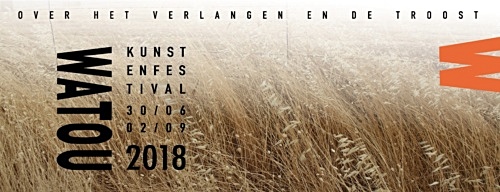
Kunstenfestival Watou 2018 loopt nog tot en met 2 september
Open: woensdag tot zondag van 11u tot 19u – maandag en dinsdag gesloten, behalve op feestdagen
Adres:
Watouplein 12
8978 Watou
Poperinge (België)
De start van het Kunstenfestival is te vinden in het Festivalhuis (Watouplein 12), op het marktplein naast de Spar. Opg elet! Voor alle weekend-events zijn de plaatsen beperkt. Een plaats reserveren kan enkel de dag zelf aan de kassa, bij aankoop van uw ticket.
# meer informatie op website kunstenfestival Watou
Kunstenfestival Watou 2018
fleursdumal.nl magazine
More in: # Music Archive, #Editors Choice Archiv, #More Poetry Archives, - Book Lovers, - Book Stories, Art & Literature News, Exhibition Archive, FDM Art Gallery, LITERARY MAGAZINES, PRESS & PUBLISHING, STREET POETRY, THEATRE, Watou Kunstenfestival
Thank you for reading Fleurs du Mal - magazine for art & literature